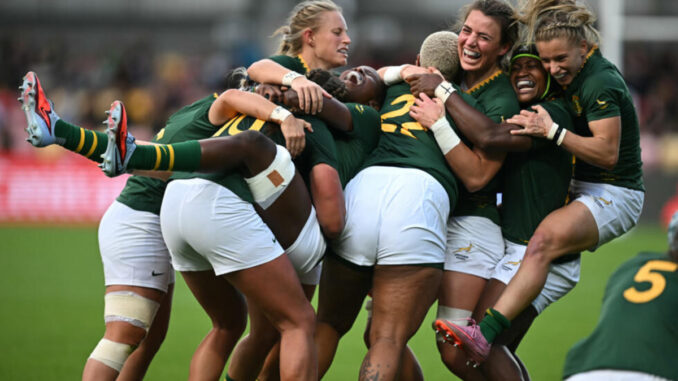
Springbok Women Break New Ground in Rugby World Cup
JOHANNESBURG — 28 August 2023
South Africa’s women’s rugby team makes history this weekend with its first-ever quarter-final appearance at the Rugby World Cup, emerging from the shadow of the four-time champion Springboks men’s side to face France.
The Springbok Women secured their historic spot after defeating higher-ranked Italy 29-24 in pool play under coach Swys de Bruin. This caps a remarkable revival since the team temporarily disappeared between 2014 and 2017.
“We are sitting on a goldmine that can explode if we’re really serious about it,” said former coach Stanley Raubenheimer, who led the revival from 2018. The transformation accelerated in 2019 when SA Rugby director Rassie Erasmus prioritized women’s rugby.
Licensed players nearly doubled from 3,900 in 2021 to 6,800 by 2024, with the professional Bulls Daisies franchise launching last year. De Bruin confirmed: “There will be more professional franchises, not only the Bulls.”
Despite milestones like their 66-6 World Cup win against Brazil – their first pool victory since 2010 – public attention trails the men’s team. Johannesburg sports bars showed their match to sparse crowds, unlike the packed venues for the Springboks’ clash against Australia.
Prop Yonela Ngxingolo believes this run can inspire change: “Definitely, because even the numbers have grown right now in terms of exposure and people seeing us. There are more girls out there that are going to be inspired.”
Like the men, the women rely on physical forward power. Forwards coach Franzel September stated: “We pride ourselves on our physicality. We know we can bully you up front. That’s in our DNA.” Loose forward Aseza Hele (172cm, 91kg) exemplifies this approach.
The squad more closely reflects South Africa’s demographics than the men’s team. Raubenheimer noted women’s rugby was “more prevalent in the black culture,” contrasting with criticism of the men team fielding one black player against Australia (public commentary).
Former high-performance manager Lynne Cantwell highlighted grassroots potential: “The South African high school system is an absolutely unbelievably ripe breeding ground for excellent talent,” adding she hopes more schools will develop competitive girls’ rugby.

Leave a Reply